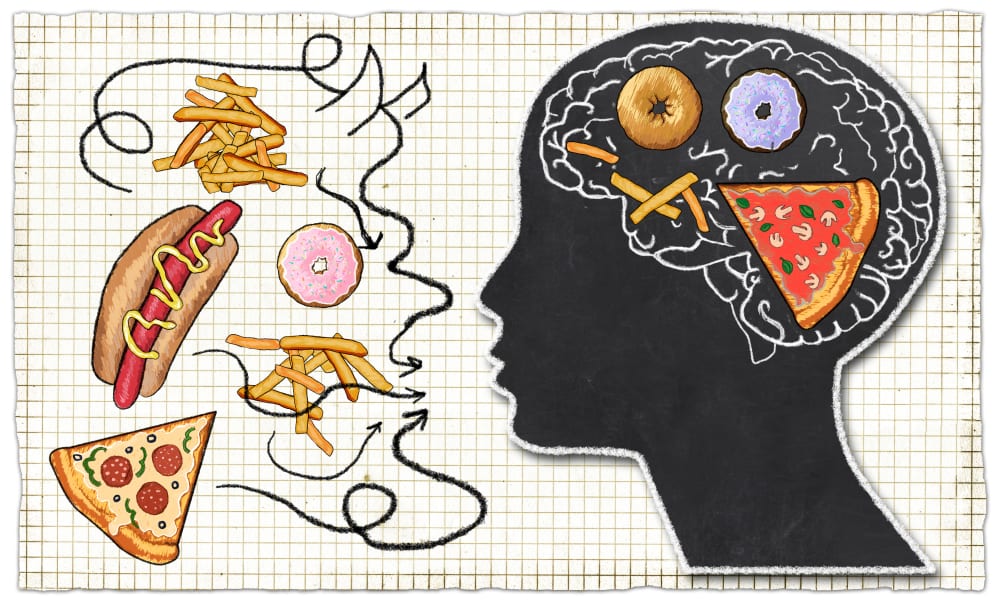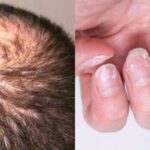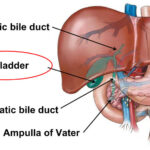Binge Eating Disorder (BED) is a severe and life-impacting eating disorder characterized by recurrent episodes of consuming large amounts of food, often rapidly and to the point of discomfort. Unlike other eating disorders, BED does not involve compensatory behaviors such as purging. It is a recognized mental health condition and is the most common eating disorder in the United States.
Key Symptoms of Binge Eating Disorder
Individuals with BED may experience a range of symptoms, including:
- Recurrent binge eating episodes: Consuming an unusually large amount of food within a specific time frame.
- Loss of control: Feeling unable to stop eating during these episodes.
- Emotional distress: Guilt, shame, or embarrassment after binge eating.
- Rapid eating: Eating faster than normal or continuing to eat despite not feeling hungry.
- Eating in isolation: Avoiding eating around others due to feelings of embarrassment.

Diagnostic Criteria
The Diagnostic and Statistical Manual of Mental Disorders, Fifth Edition (DSM-5), outlines specific criteria for diagnosing BED, including the frequency of binge episodes (at least once a week for three months).
Causes and Risk Factors
BED arises from a complex interplay of genetic, psychological, and environmental factors. Below are some of the most notable contributors:
Biological Factors
- Genetics: A family history of eating disorders may increase the likelihood of developing BED.
- Neurotransmitters: Imbalances in serotonin and dopamine levels can influence appetite and emotional regulation.
Psychological Factors
- Trauma: Past experiences of abuse, neglect, or significant stress.
- Mental health conditions: Anxiety, depression, and low self-esteem often co-occur with BED.
Environmental Factors
- Dieting history: Chronic dieting or a history of weight cycling.
- Cultural pressures: Societal emphasis on thinness and diet culture.
Health Consequences of Binge Eating Disorder
BED can lead to a wide array of physical, emotional, and social consequences:
Physical Health
- Obesity: Increased risk due to excessive caloric intake.
- Cardiovascular diseases: Higher likelihood of hypertension and high cholesterol.
- Type 2 diabetes: Elevated blood sugar levels and insulin resistance.
- Gastrointestinal issues: Chronic discomfort, bloating, and irritable bowel syndrome (IBS).
Mental Health
- Depression and anxiety: Persistent feelings of sadness or worry.
- Body dissatisfaction: Heightened negative body image.
- Social withdrawal: Isolation due to shame or embarrassment.
Effective Treatments for Binge Eating Disorder
Cognitive Behavioral Therapy (CBT)
CBT is one of the most effective treatments for BED. It helps individuals identify and modify negative thought patterns and behaviors associated with binge eating.
Dialectical Behavior Therapy (DBT)
DBT focuses on improving emotional regulation and coping mechanisms, particularly for individuals who binge eat in response to stress.
Medications
- Lisdexamfetamine: Approved by the FDA to treat moderate to severe BED.
- Antidepressants: SSRIs and other medications may help alleviate co-occurring depression and anxiety.
Nutritional Counseling
Working with a registered dietitian can help individuals establish healthier eating patterns and address triggers for binge eating.
Support Groups
Programs like Overeaters Anonymous provide peer support and a structured environment for recovery.
Self-Help Strategies
For those experiencing BED, self-help approaches can complement professional treatment:
- Mindful eating: Paying attention to hunger and fullness cues.
- Stress management: Engaging in activities like yoga, meditation, or journaling.
- Regular physical activity: Incorporating exercise into daily routines.
- Seeking social support: Talking to trusted friends or family members.
Preventing Binge Eating Disorder
Preventive measures involve fostering a healthy relationship with food and body image:
- Promote balanced eating: Avoid restrictive diets and encourage diverse, nutrient-rich meals.
- Encourage positive body image: Focus on self-acceptance rather than appearance.
- Educate early: Teach children and adolescents about healthy eating habits and emotional coping skills.
Binge Eating Disorder vs. Other Eating Disorders
BED vs. Bulimia Nervosa
- Key difference: Bulimia involves compensatory behaviors like purging, while BED does not.
BED vs. Anorexia Nervosa
- Key difference: Anorexia is characterized by severe restriction of food intake, while BED involves overconsumption.
When to Seek Help
If you or someone you know exhibits signs of BED, it is important to seek professional help. Early intervention can significantly improve outcomes.
Finding a Specialist
Contact a healthcare provider specializing in eating disorders or visit trusted organizations like the National Eating Disorders Association (NEDA).

